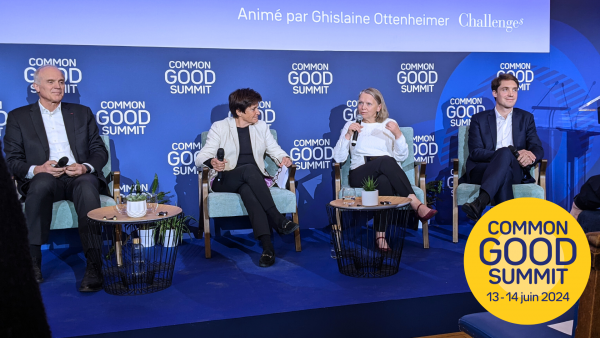
This debate took place as part of the fourth edition of the Summit of the Common Good, organised jointly by TSE, Challenges and Les Echos-Le Parisien Evénements. On 13 and 14 June 2024, economists, economic decision-makers, representatives of public authorities and civil society came together to reflect on a central question: Who will pay for the common good?
Removing 1 tonne of CO2 per year from our carbon footprint would reduce ice melt by 4 m3 and extend our life expectancy by 6 hours. These are the findings of a recent study on the subject, underlining the importance of individual action. But to act, we need to know. A just transition will first and foremost be an informed transition, during which citizens will have sufficient knowledge to make informed decisions. They will then know that their actions count, and that there are thousands of concrete, positive effects when we act for the climate.
Yet few people are prepared to make more sacrifices than others, especially in the current context of inequality. Why should the poorest, who are already de facto sober, have to do more, when it's the richest 5% of the planet who emit the most greenhouse gases? We need to think about how to compensate and rebalance for greater equity.
The first studies on the link between climate change and behavior showed that when people learn that their neighbors consume more water or electricity, they are more inclined to make an effort. But conversely, those who were the "good students" tend to adopt less virtuous behavior.
More generally, we need to rethink the meaning of our existence. Are we happy because of the products or services we buy? By imagining structures and systems that would enable us to choose between borrowing and buying, we could reduce the incentive to consume that is currently holding back the transition.
Article published in Challenges in June 2024
© Anaëlle Raguet © Franck Foucha




